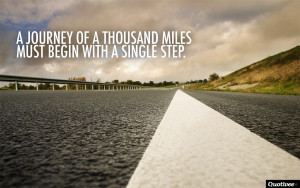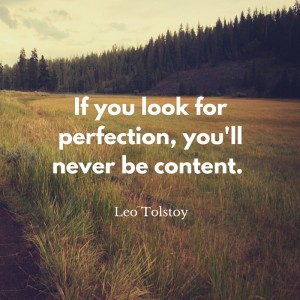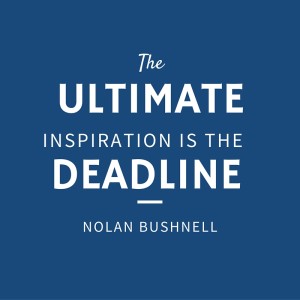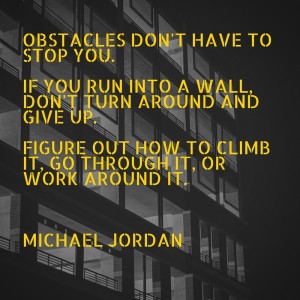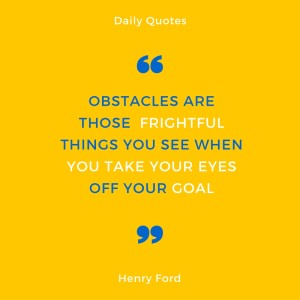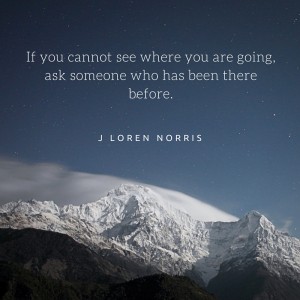“Have you ever thought of something that seemed so great in your head, but you had no idea where to begin? How do you overcome obstacles when your idea doesn’t seem to work as well in reality as it did in your head?“
These are two great questions, posed by my good friend Donnie Noland. They identify the two hardest parts of doing creative work
- Getting Started
- Facing Challenges
Getting started is challenging because
- Our personal identity is tied up in our idea and putting that idea onto paper exposes it to criticism.
- Our idea is still fuzzy and getting started requires us to answer the difficult questions of implementation.
- It is difficult to commit time to something new and uncertain when we have so many other things on our plate.
Facing obstacles is challenging because
- We begin to see how much harder executing this idea is going to be than we thought!
- We aren’t as sure if we had a good idea to begin with.
- We aren’t as sure we have the skills to execute on our idea.
All of these reasons are fundamentally tied to fear and uncertainty.
Pushing through this fear and bringing your ideas to life is never easy. Even those of us with years of experience and success still face these challenges everyday. Here are six tips that can help.
How to Get Started
1. Start Small- Don’t try to implement your “Big Idea” all at once. Try to think of the smallest part of your idea and test that first. With my deckbuilding game Ascension, I first wanted to test the idea of a rotating set of available cards (as opposed to the fixed availability in a game like Dominion). To test this, my first step was to shuffle up a set of Dominion cards and play the game that way. I saw the potential in a randomized set of cards even as I noticed the many issues with this execution. Once I had the core idea tested, I could move on to the more work-intensive phase of developing my own set of cards and rules. Trying to tackle too much at once leads to a feeling of overwhelm. Big thinking starts small.
2. Accept Imperfection- Don’t expect your first iteration to be good. It won’t be. Just do the minimum needed to test the smallest part of your idea. You can always come back and refine later. Lowering your standards for the initial design phase will allow you to move forward without risking your ego. Crappy first drafts are the hallmark of good writing, and crappy first prototypes are the hallmark of good game design. Done is better than perfect.
3. Set a Deadline- Deadlines are magical. They force you to focus on the essential and commit to getting things done. Think about how efficiently you work when you are about to leave for vacation. Your productivity sky-rockets because you know you have to get things done and are excited about the end result. It is easy to let a “side project” like designing a game constantly slip in favor of more pressing demands. Set a reasonable but aggressive deadline and stick to it. It can be very helpful to tell other people about your deadline to increase the pressure (e.g. set up a game night in two weeks with some friends to test your first prototype).
How to Overcome Obstacles
1. Fail better next time- Every obstacle and challenge is an opportunity to improve. Reframe failure as opportunity. If your initial idea didn’t work, was there something else about your initial prototype that was unexpectedly fun? Try designing your next prototype around that. If you are blocked by some practical limitation, is there some way to get around it? If you want to prototype a digital game, is it possible to mod an existing game or make a physical prototype first? Design is an iterative learning experience, so don’t get discouraged from opportunities to learn. We’ve all been there.
2. Write down your goals and keep them visible- During the iteration process, things get frustrating. It can be easy to lose your way as you try and overcome unforeseen obstacles. It helps to set concrete goals and keep them in front of you to remind you what you are working towards. If you want a prototype playable for your friends in 60 days, keep a sign with the deadline on your desk or taped to your bathroom mirror. Break the goal down into mini-goals that you can accomplish each week or each day. If you find yourself stuck, break the tasks into ever smaller chunks until you find something you can start making progress on. Once you get moving, momentum can help you get past additional roadblocks.
3. Ask for help- Successful people are not afraid to ask for help when they need it. Find people who have done the things you want to do and ask them for help. Most people in the gaming industry are very friendly and all too happy to help someone who is making progress and asks good questions. There are great resources on the web to ask questions about almost anything. If that doesn’t work, reaching out to friends or potential mentors in the industry is a great approach. When approaching a potential mentor, make it clear that you’ve done your homework. Don’t ask a question that a quick google search could solve. Try to be as specific as possible and of course be respectful.
I won’t lie to you. Even with the above tips, getting started and overcoming obstacles is still going to be difficult. In fact, it is this very challenge that makes the project worth doing! Completing a creative project brings with it its own rewards even if it isn’t the Next Big Thing (TM). You learn from everything you do and you get to express yourself (flaws and all) with each project you complete. Be bold, take risks and have fun! Succeed or fail, you will be in good company.

